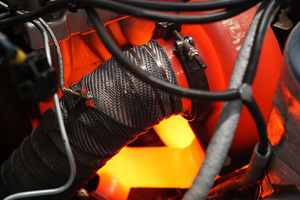The Need for fuel economy: Turbochargers and Direct Injection a work in progress. Note: This was an older article I never added here but still contains important things to highlight. Keep in mind the actions needed to extend the life of these engines. Alex Thompson | Sep 06, 2017 11:04 AM Turbocharged, gasoline-direct-injection (T-GDI) engines […]
You are browsing archives for
Category: Turbochargers
Deposit protection is critical for turbo...
Deposit protection is critical for turbocharged engines Motor oil quality must stay ahead of the curve. Matt Erickson | TECHNICAL PRODUCT MANAGER, PASSENGER CAR It may be a good time to invest your retirement funds in a company that builds automotive turbochargers; they’re predicted to be in most new passenger cars/light trucks by 2020. As […]
Engine Deposits can be Prevented using S...
Help Preserve Your Engine’s Horsepower Although you may equate engine wear and deposits with sudden, catastrophic engine failure, they are more likely to erode engine power and efficiency over time. Here’s how it works and what you can do about it. Several factors cause an engine to slowly lose power, but one of the primary […]
One Clear Choice in Engine Deposit Contr...
Leading the Field In Deposit Protection Quality is Key Testing proves AMSOIL Signature Series 5W-30 Synthetic Motor Oil provides more complete protection against damaging deposits than its competitors. The push toward smaller, fuel-efficient yet powerful engines has driven the development of several key technologies. Gasoline direct injection (GDI) and turbochargers are now common features of […]


